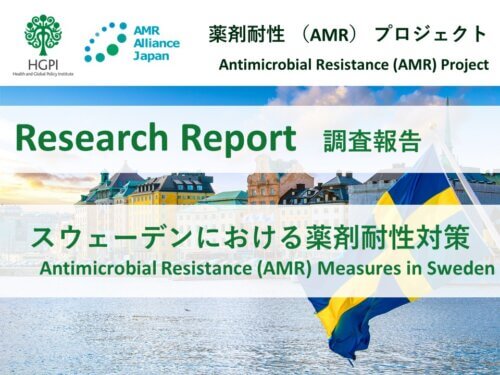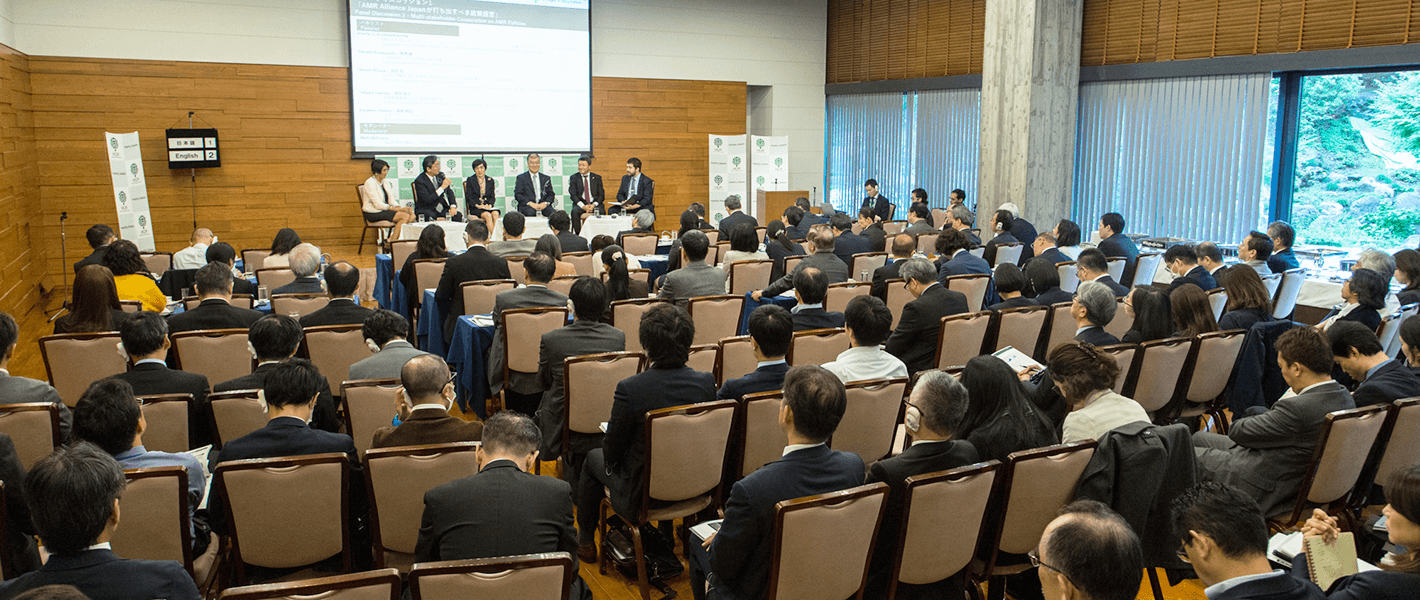[Reserch Report] Antimicrobial Resistance (AMR) Measures in Sweden (November 21, 2024)
- Home >
- Information >
- News >
- [Reserch Report] Antimicrobial Resistance (AMR) Measures in Sweden (November 21, 2024)
 In recent years, antimicrobial resistance (AMR), where antibiotics become ineffective against bacteria, fungi, and other microorganisms, has become an urgent global health concern worldwide. The proliferation of AMR has been referred to as a “silent pandemic” or “the next threat following COVID-19,” necessitating urgent countermeasures.
In recent years, antimicrobial resistance (AMR), where antibiotics become ineffective against bacteria, fungi, and other microorganisms, has become an urgent global health concern worldwide. The proliferation of AMR has been referred to as a “silent pandemic” or “the next threat following COVID-19,” necessitating urgent countermeasures.
Antibiotics that cause AMR are used not only in medical institutions but in various other settings. For instance, antibiotics are commonly used for raising livestock and caring for pets. Additionally, antibiotics are released into the environment through hospital wastewater and human excrement. This widespread use of antibiotics in numerous contexts is linked to the spread of AMR in various forms. Therefore, to address AMR, it is crucial to adopt the One Health approach which comprehensively considers these factors and encompasses humans, animals, and the environment. The One Health approach requires establishing cooperative systems across various sectors, including not only medical institutions but also elderly care facilities, educational institutions,, water supply and sewage treatment facilities, and agricultural, livestock, and fisheries facilities.
In the field of cross-sectoral efforts to combat AMR, Sweden is known for its numerous progressive initiatives. Sweden, as the EU Council Presidency in the first half of 2023, led the adoption of the 2023 European Parliament resolution on AMR measures and plays a central role in the European Union’s AMR strategy. Together with Japan, which held the G7 presidency in 2023, both countries have led global AMR measures
In light of this, Health and Global Policy Institute has conducted a research on AMR measures in Sweden and produced this report. This report provides an overview of AMR initiatives in Sweden and introduces the activities of “Antibiotic Smart Sweden,” which is one of the AMR control frameworks that Sweden is currently focusing on. This program has attracted attention as an innovative program to realize community-based, citizen-driven AMR control. Several municipalities and regions are participating in the project, conducting surveys to understand AMR trends in sewerage facilities and elderly care facilities, and spreading awareness of AMR at educational institutions.
We hope that the perspectives shared in this report will contribute to the development of community-based AMR strategies and promote future cross-sectoral efforts in Japan.
*The English version of this report will be available in a due course.
■November 18-24 is World AMR Awareness Week (WAAW)
The World Health Organization (WHO) has designated November 18-24 as World AMR Awareness Week (WAAW) 2024, with the theme “Educate. Advocate. Act now.” This theme emerged from a global survey gathering nearly 200 responses from actors within the human, animal, plant, and environmental health sectors. This year holds particular significance with both the UN General Assembly High-Level Meeting on AMR and the 4th Global High-Level Ministerial Conference on AMR providing crucial opportunities for strengthening political and financial commitments. WAAW calls on everyone to learn about antibiotic resistance, advocate for meaningful change, and take concrete actions to address this pressing global health challenge.


